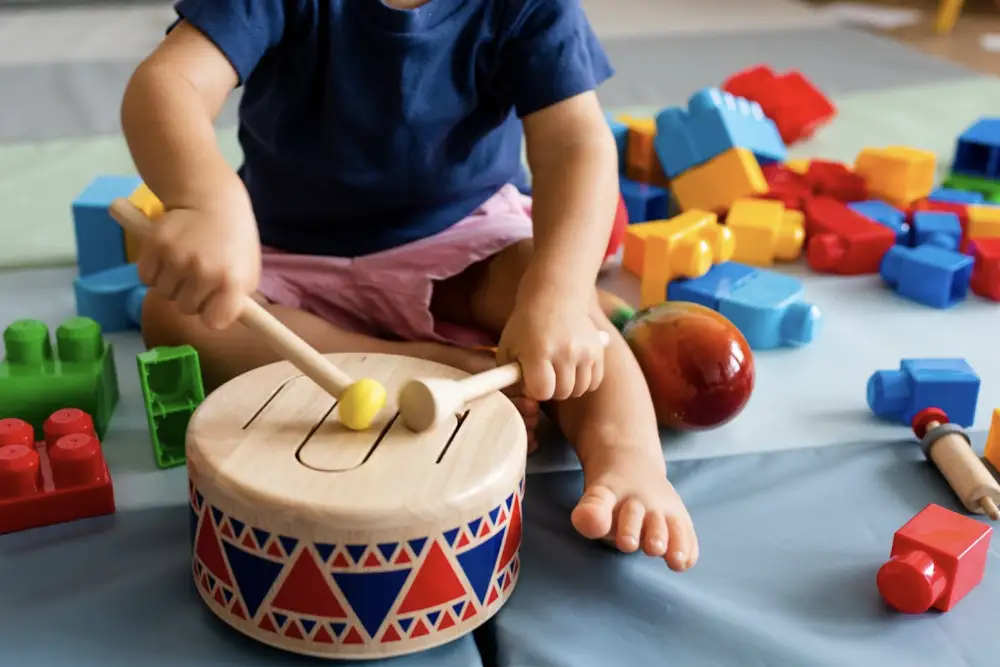Preschoolers and the Power of Play

Why is play so essential to early childhood development and wellbeing? The experience of play builds connections in your child’s brain, which helps them develop physically, cognitively, socially, and emotionally. Play also strengthens relationships (especially between parent and child), teaches critical life skills, and reduces stress. Ready for fun? The following are five tips on how you can encourage your preschooler’s imagination and creativity.
Let imagination soar
First, make sure your child has easy access to toys, crafts, costumes, and a variety of everyday objects that they can play with. The more they play, the better they will get at it. And kids don’t need expensive toys to play – they just need time, space, and freedom to explore the ideas that interest them. No matter what it looks like, when children play, they learn.
Promote healthy play
Second, discourage the use of screens and devices. Excessive screen time is not good for developing brains and has been linked to obesity, anxiety, and depression. For children under two, we recommend no screen time. For children ages two to five, limit non-educational screen time to about one hour per weekday and three hours a day on the weekend. Make sure to turn off all screens during family meals and outings. Learn about, and use, parental controls to keep your preschooler off your screens. Also, the content of what your child sees should always be age appropriate. Overall, the less time our children spend on screens, the more they’ll engage in healthy and creative play. Pro tip: Keep devices out of sight and out of reach to help discourage screen time.
Give creativity free rein
Carve out a space at home where your child can be creative and even get a little messy. Provide them with a variety of different art and craft supplies, such as construction paper, crayons, fabrics, glue, play doh, stickers, and yarn. You can turn it into a game by placing some random art supplies and/or crafting materials in a box, then have your child close their eyes and pick out a few items to turn into a work of art.
Engage the senses
Third, try a physical activity with your child that uses several senses at the same time. (This will also help develop their gross motor skills.) For example, you and your child can toss a ball back and forth while singing and balancing on one foot. This will also help your child get the daily exercise they need to thrive. Pro tip: Preschool-age children need at least three hours of physical activity every day, or about 15 minutes for every hour they are awake.
Explore and observe
Fourth, to help develop your child’s attention and observation skills, play a game of hide-and-seek or a scavenger hunt. For a scavenger hunt, you can create clues by taking photos of places where you’ll hide treats, toys, or other items for your child to find. For older preschoolers, you can use sight words for clues. For themed games, enjoy a spooky Halloween hunt with flashlights or a hide-and-seek mystery with a magnifying glass.
Build self-esteem
Fifth and finally, it’s very important to be generous and positive about your child’s creative ideas, no matter the outcome. Focus on praising their efforts versus how well their project or artwork looks compared to others. Remember, your child’s self-esteem and sense of self-worth is built through these interactions, especially with their parents, caregivers, and other close family members.
Have any questions?
East Portland Pediatric Clinic is open six days a week. You can reach our office at 503-255-3544. If you need to reach us after hours with any urgent questions or need medical advice, call 503-255-3544 and press 5 or stay on the line to be transferred to our answering service. They will take your information and page the doctor on-call.
